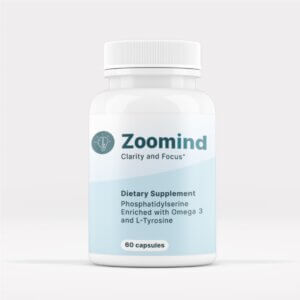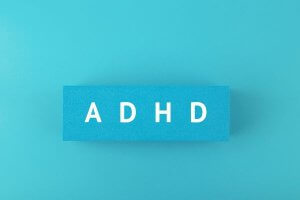
It is just as important to recognize that there is much that can be done to help people living with ADHD. Both the individuals themselves and the family members, teachers, and friends are affected when behavior goes off the rails because something has happened that makes ADHD worse. Until recently, there were limited options for managing symptoms of ADHD. There are fairly aggressive pharmaceutical treatments for the symptoms that do produce immediate benefits but they are not long-term cures and come with unavoidable side effects. The alternative is behavioral therapy, which may require much time and patience before substantial improvements are seen. Now, there is Zoomind, which is a dietary supplement that specifically addresses most of the underlying biological issues that lay the groundwork for ADHD. With Zoomind, it is possible to address the causes, not only the symptoms, and to improve the whole picture, including the situations that serve to make ADHD worse.
Factors Influencing ADHD That Can Make ADHD Worse.
Identifying the causes of ADHD is difficult, but certain elements are known to make ADHD worse:
Genetics
While there is a link to ADHD, according to the popular website ADDitude, specific genes responsible for it have not been pinpointed.
Age
ADHD typically manifests in childhood and may improve with time; however, it can. Worsen into adulthood.
Gender
Boys are more likely to exhibit ADHD symptoms to puberty but this trend shifts as they mature with more women displaying signs than men.
Development
Various health conditions, prenatal and birth circumstances, and developmental delays can impact ADHD.
Lifestyle Choices
Diet, education level, physical activity regimen, and medication usage all play a role in influencing ADHD.
Major Life Activities Affected by ADHD
ADHD symptoms become evident when individuals encounter challenges performing age-appropriate tasks. For instance, expecting kindergarteners to remain seated and finish drawing pictures may be unrealistic. However, if an older child consistently finds it challenging to handle tasks at the same difficulty level as their classmates, it could indicate that their ability to concentrate and regulate themselves is not developing as expected.
Kids with ADHD often require support from parents or teachers to navigate schoolwork and social interactions. Lack of this assistance or needing continuous help without acquiring the necessary self-management skills can make their condition worse. Criticism and punishment from teachers, parents, and peers can worsen ADHD symptoms, leading to frustration and low self-esteem.
What does ADHD do to the Brain?
ADHD is linked to brain function issues that can vary depending on the tasks at hand. It’s not a condition that improves or deteriorates over time, but it does affect brain development and cognitive abilities. Chemicals like dopamine and norepinephrine in the brain play a role in information processing. In individuals with ADHD, these chemicals may not function properly, hindering focus and attention.
What are the Daily Difficulties of ADHD?
While children with ADHD may excel academically, they may struggle in their interactions with other people. Hyperactive kids might miss social cues, while those with attention deficits could find it difficult to respond properly to teasing or to participate in group activities. This can lead to social isolation or withdrawal into solitary activities.
Individuals with ADHD are more likely to experience mental health challenges like anxiety, depression, and compulsive behaviors. Dealing with these difficulties can significantly impact their daily lives.
In adults, ADHD is often associated with substance abuse issues. Research indicates that adults with ADHD are more inclined to misuse substances such as alcohol, cocaine, cannabis, and nicotine. Many individuals turn to these substances seeking relief from the emotional distress caused by ADHD symptoms, which can lead to addiction and exacerbate the condition further.
At What Age Does ADHD Peak Throughout Life?
While most studies on ADHD concentrate on children and adolescents, research on adults suggests that ADHD symptoms can persist and even worsen as they age. In adulthood, ADHD can result in challenges related to employment, health, personal connections, and overall well-being.
As individuals grow older, a natural decrease in neurotransmitters like dopamine may lead to attention-related problems similar to those seen in ADHD. Screening adults for ADHD can help identify those whose cognitive struggles may stem from lifelong ADHD exacerbated by aging rather than other systemic diseases. Menopause-related changes in estrogen levels, which modulate dopamine release, can also lead to ADHD-like symptoms in women.
What can Intensify ADHD Symptoms?
Other activities and circumstances have the potential to make ADHD worse in both children and adults.
Some typical difficulties and suggestions to handle them include:
- Too Much Screen Time
Spending time on screens can exacerbate impulsiveness, lack of focus, and hyperactivity. Limiting screen use, promoting activities, and establishing screen-free areas and times at home can all be beneficial. - Lack of Routine and Structure
Individuals with ADHD may find it challenging to manage time and tasks without an approach, leading to frustration and anxiety. Creating a daily schedule with regular meal times, study sessions, and bedtime routines can be helpful. - Overwhelming Environments
Environments with noise, bright lights, or visual clutter can overwhelm individuals with ADHD. Managing sensory overload can be assisted by using noise-canceling headphones, planning outings during quieter periods, and teaching relaxation techniques such as breathing. - High Sugar Diets
Some research indicates that diets high in sugar may complicate the management of ADHD symptoms. Encouraging a balanced diet can aid in symptom management. - Changes in Environment
Medical conditions, family challenges, domestic issues like violence or separation/divorce, job loss or frequent moves can have adverse effects on individuals with ADHD. Providing stability and support during these transitions is crucial to minimize their impact.
In Summary
ADHD is a condition influenced by various factors; thus, recognizing and addressing activities that exacerbate symptoms is crucial for effective management.
People with ADHD can enhance their ability to manage the obstacles encountered in their daily routines by coping with the impact of these factors and adopting tactics for offering guidance and stability.







